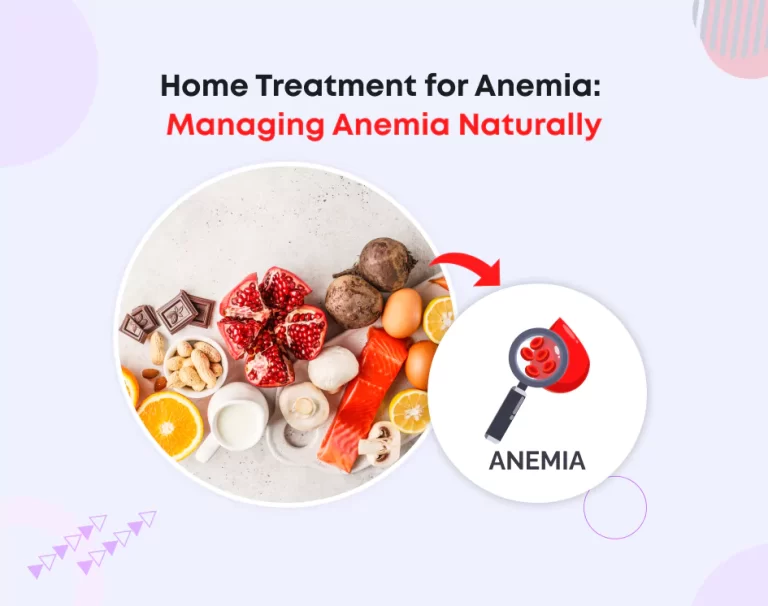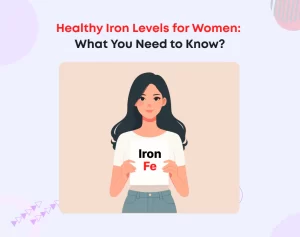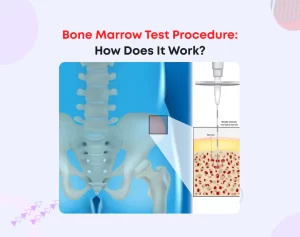
Home Treatment for Anemia: Managing Anemia Naturally
Anemia is a common blood disorder where our body lacks sufficient red blood cells to carry enough oxygen to tissues and organs. It makes anyone tired, weak, and sometimes even dizzy or short of breath. Iron-deficiency anemia is the most prevalent form, though there are various types of anemia.
Fortunately, there are various ways to manage anemia naturally with home remedies, lifestyle changes, and dietary adjustments. In this article, we’ll explore practical ways to manage and treat anemia at home.
Symptoms of Anemia
- Fatigue and weakness
- Paleness or yellowish skin
- Shortness of breath
- Dizziness or lightheadedness
- Cold hands and feet
- Headaches
- Brittle nails and hair loss
Common Causes of Anemia
Iron deficiency: The most common type of anemia is caused by insufficient iron in the body. Iron helps to create hemoglobin, a protein that transports oxygen throughout the body.
Vitamin B12 deficiency: Low levels of vitamin B12 can also result in anemia, affecting the production of red blood cells.
Chronic diseases: Diseases such as kidney disorders or cancer can disrupt the production of red blood cells.
Blood loss: Heavy menstrual periods, gastrointestinal bleeding, or any form of significant blood loss can lead to anemia.
Inherited conditions: Sickle cell anemia and thalassemia are inherited blood disorders that result in anemia.
Home Treatment for Anemia
While it is important to consult with a healthcare professional to determine the cause of anemia and receive appropriate treatment, certain home remedies can complement medical interventions.
Home treatments focus on improving nutrient intake, boosting red blood cell production, and promoting overall well-being.
1. Iron-Rich Foods
Iron deficiency is the leading cause of anemia, and one of the best ways to manage it is through dietary changes. Iron plays a vital role in the formation of hemoglobin. There are two types of iron found in food: heme iron (found in animal products) and non-heme iron (found in plant-based foods).
Heme iron: This type of iron is found in meat, poultry, and fish. Beef, chicken, and fishes such as salmon, sardines, and tuna are excellent sources.
Non-heme iron: This type is found in plant-based foods such as beans, lentils, spinach, kale, quinoa, tofu, fortified cereals, and dried fruits like apricots and raisins.
Include plant-based iron sources with vitamin C-rich foods to enhance iron absorption. For example, adding citrus fruits (oranges, lemons), bell peppers, tomatoes, and broccoli to your meals can significantly boost iron absorption.
2. Vitamin B12-Rich Foods
Vitamin B12 is an essential element in producing red blood cells. A deficiency in B12 can lead to pernicious anemia, a condition where red blood cells are larger than normal and cannot carry oxygen efficiently.
To naturally increase B12 levels, incorporate the following foods into your diet:
Animal products: Eggs, dairy products (milk, yogurt, cheese), beef, liver, and fish (salmon, sardines, tuna).
Fortified foods: Many plant-based milk (almond, soy, rice), cereals, and nutritional yeast are fortified with B12, making them great options for vegetarians and vegans.
3. Folate (Vitamin B9)
Folate, or vitamin B9, is another crucial nutrient involved in the production of red blood cells. It works together with vitamin B12 to help form and mature red blood cells in the bone marrow. Folate deficiency can result in megaloblastic anemia, where the bone marrow produces abnormally large red blood cells.
You can naturally increase your folate intake with the following foods:
Leafy greens: Spinach, kale, and collard greens.
Legumes: Lentils, beans, and peas.
Citrus fruits: Oranges, lemons, and grapefruits.
Fortified grains: Bread, pasta, and cereals fortified with folic acid.
4. Copper-Rich Foods
Copper is an essential trace mineral that supports iron metabolism and helps produce hemoglobin. It works synergistically with iron to ensure efficient oxygen transport in the body. Copper deficiency can contribute to anemia, though it’s relatively rare.
Incorporate copper-rich foods into your diet, including:
Shellfish: Oysters, crab, and lobster.
Nuts and seeds: Cashews, sunflower seeds, and almonds.
Whole grains: Oats, barley, and quinoa.
Dark leafy vegetables: Kale and spinach.
Spirulina, a type of algae rich in iron, vitamin B12, and other essential nutrients, can be consumed in powder form or as a supplement to increase the red cell production.
6. Manage Blood Loss
If anemia is due to blood loss, such as heavy menstruation or gastrointestinal bleeding, addressing the underlying cause is essential. Consult a doctor to determine the source of the blood loss. While waiting for medical intervention, focus on increasing iron intake to help your body compensate for the lost blood.
7. Exercise Regularly
Regular physical activity is not only good for overall health but can also help stimulate red blood cell production. Exercise improves circulation and the body’s ability to deliver oxygen to tissues, which is particularly important for people with anemia. Aim for moderate-intensity activities like walking, swimming, or yoga, but be mindful of your energy levels and avoid overexertion.
8. Stay Hydrated
Dehydration can exacerbate the symptoms of anemia. Drinking enough water is crucial to support healthy blood volume and circulation. Dehydration can lead to lower blood volume, making it harder for red blood cells to circulate and carry oxygen.
Aim for at least 8 glasses of water a day, but the amount may vary depending on individual needs, activity levels, and climate.
9. Avoid Iron Inhibitors
Certain substances can inhibit iron absorption, so it’s important to limit or avoid them when trying to manage anemia. Common iron inhibitors include:
Tannins: Found in tea and coffee, tannins can reduce iron absorption.
Calcium: High doses of calcium can interfere with the absorption of both iron and zinc.
Phytates: Present in whole grains and legumes, phytates can also reduce iron absorption, although soaking or sprouting these foods can help reduce their phytate content.
Try to avoid consuming these substances with iron-rich meals or supplement doses.
When to Seek Medical Help?
While dietary and lifestyle changes can significantly help manage anemia, it’s essential to seek medical advice if you suspect you have anemia or if you have trouble managing symptoms.
A healthcare provider will conduct blood tests to determine the specific type of anemia and recommend a treatment plan as per your needs. For severe anemia, medical treatments such as iron supplements, vitamin B12 injections, or blood transfusions may be necessary.
Hence it is always advised to seek medical intervention since natural remedies may not be scientifically proven, could have limited effectiveness, or may interact negatively with other treatments, leading to potential health risks.






